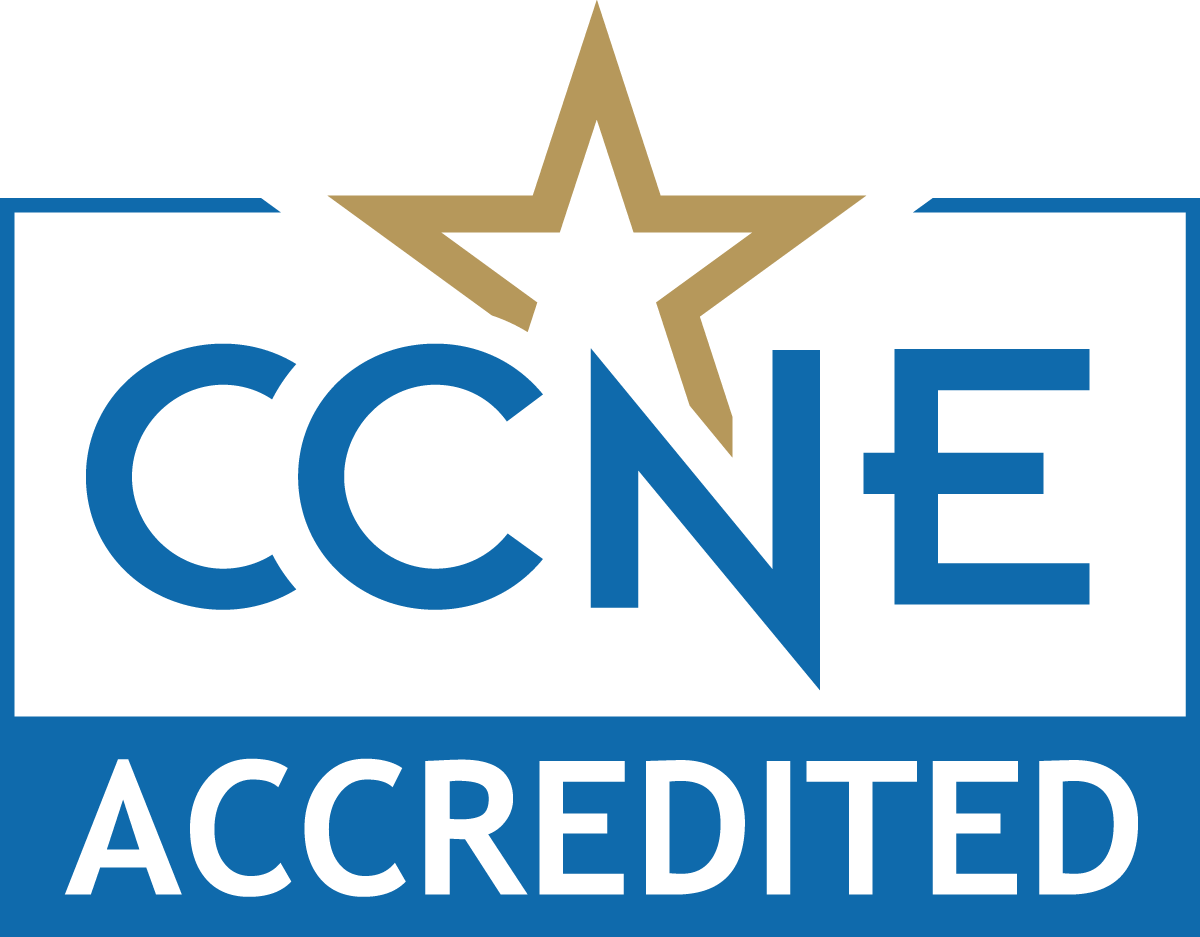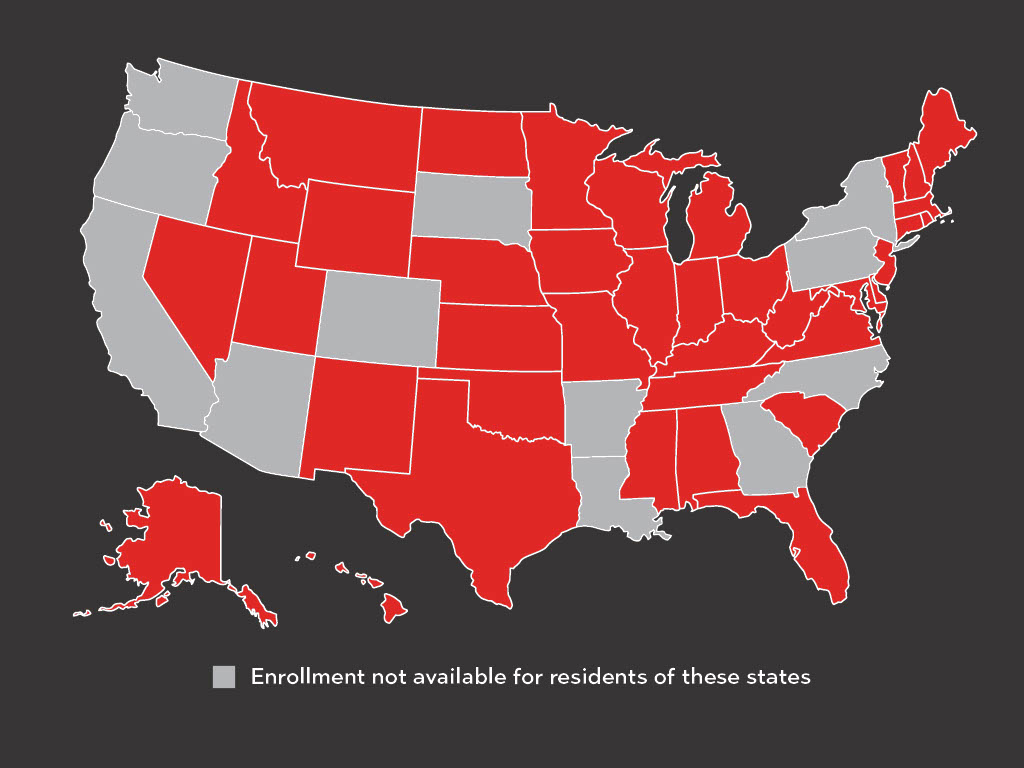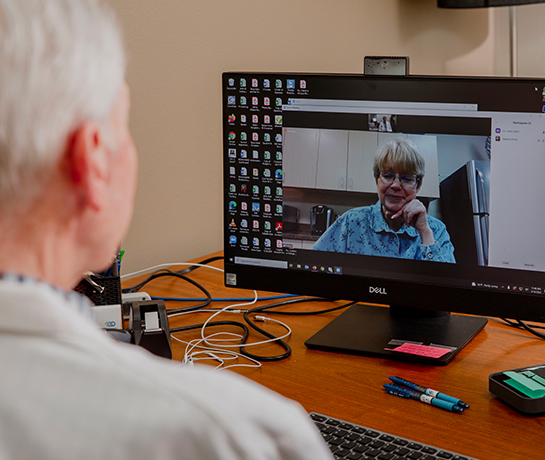BSN to DNP Psychiatric Mental Health Nurse Practitioner
BSN-DNP Psychiatric Mental Health Nurse Practitioner
Application Deadline | September 1, 2026 - January 15, 2027
Next Start Date | May 2027
The DNP is a professional doctorate. Nurses with the BSN degree can apply to the BSN to DNP program and move directly from the BSN degree to the DNP degree for the Psychiatric Mental Health Nurse Practitioner track. The BSN to DNP program is a combination of online and face-to-face courses and supervised clinical experiences and will meet all educational standards established by the American Association of Colleges of Nursing (AACN) The Essentials: Core Competencies for Professional Nursing Education (2021) and the National Organization of Nurse Practitioner Faculty’s (NONPF) Criteria for Evaluation of Nurse Practitioner Programs (2016), which are the standards for both FNP and PMHNP programs. Graduates will meet all qualifications to sit for national certification to become a Psychiatric Mental Health Nurse Practitioner upon completion of the DNP degree.
Disclaimer: Due to changing regulations, the TTUHSC SON Graduate Programs cannot guarantee at the time of submission of an application that we can accept students from a particular state. At this time, we are unable to accept students living in the following states: Arizona, Arkansas, California, Colorado, District of Columbia, Louisiana, New York, North Carolina, Oregon, Pennsylvania, South Dakota or Washington.
![]()
Strong Reputation Opens Doors
to top-tier clinical placement opportunities.
![]()
Emphasis on hands-on training
with more than 950 hours of direct patient care experience.
![]()
Cost-effective choice
making it an excellent value for students.
![]()
Specialized coursework
in neuroscience, telehealth, and trauma-focused CBT.

![]()
A Simple Admissions Process
Connect with an admissions coach to ensure you meet at the requirements to get started in the BSN-DNP PMHNP program!
Admission Criteria Includes:
To get started on your BSN to DNP, you’ll need the following:
- Valid unencumbered RN License
- A minimum GPA of 3.0 cumulative undergraduate GPA
-
Baccalaureate nursing degree from a regionally accredited college or university with nursing program accreditation from the Commission on Collegiate Nursing Education (CCNE) or accreditation from the American Commission for Education in Nursing (ACEN), formerly the National League for Nursing Accrediting Commission (NLNAC)
Admissions Coach: Ryan Anderson
Phone: 806.743.9294
Email: applynursing@ttuhsc.edu
Unsure of Which Path to Becoming a Psychiatric Mental Health Nurse Practitioner is
Best for You?
Explore the key differences between the MSN PMHNP and BSN-DNP PMHNP programs, both designed to prepare Psychiatric-Mental Health Nurse Practitioners (PMHNPs) for practice in community, acute care, and telehealth settings. These programs emphasize evidence-based diagnosis and management across the lifespan, with a strong focus on rural health and the development of PMHNP practice. Additionally, they prioritize both in-person and telemental health delivery, with particular attention to early intervention for children, adolescents, and families.
Our Programs
MSN PMHNP
2-year full-time full-time (6 semesters) or part-time (9 semesters) options
MSN PMHNP track requires 49 credit hours
Coursework is 100% online, except for a 2-day OSCE
Clinical hours done locally with approved preceptors and sites
Ideal for students passionate about mental health care
BSN-DNP PMHNP
4-year full-time (12 semesters) with summer start
75 credit hours total; 1,080+ clinical hours; online program with required on-campus sessions 1–2 days/semester
Clinicals done locally with approved preceptors; part-time work strongly recommended due to time demands
Highest level of APRN education, leadership prep, focused clinicals, and better career advancement
Skilled in evidence-based care, systems leadership, interprofessional collaboration, and informatics-driven decisions
PM-DNP PMHNP
Prepares nurses for top-level practice and leadership to improve health outcomes across diverse settings
45–46 credit hours over 6 semesters; online courses with 3-day executive sessions twice per semester
Focus on Executive Leadership in Nursing; no APRN certification required
Open to master’s-prepared nurses; non-nursing master's holders may need extra coursework and experience
PM-DNP applicants can pursue a dual Post-Graduate PMHNP Certificate with a customized degree plan
Are you interested in discovering more options to earn an MSN or BSN-DNP? Click here to learn more!

Tuition
The BSN to DNP program at Texas Tech University Health Sciences Center (TTUHSC) offers transparent tuition fees with no hidden costs. Students can expect to pay the tuition rate without additional unexpected fees, ensuring clarity and ease when planning their educational expenses.
- Program Cost - Current tuition information can be found here or by contacting Student Business Services from 8:30 a.m. to 4 p.m. CST at 806.743.7867.
- Financial Aid - Applicants interested in applying for financial aid (student loans, grants, scholarships) upon admittance to the School of Nursing must complete a Free Application for Federal Student aid (FAFSA). The School of Nursing requires a FAFSA on file to be eligible for scholarships offered by the school. Financial aid (student loans, grants, scholarships) are available upon admittance to the School of Nursing. Additional information may be found at the Financial Aid Office website. Lena Hooker, Senior Financial Aid Advisor can be reached at 806.743.2300 or lena.hooker@ttuhsc.edu.
- Scholarships can be found here
- Military/Veteran information found here
Accreditation
The baccalaureate degree program/master's degree program in nursing/Doctor of Nursing Practice program and/or post-graduate APRN certificate program at Texas Tech University Health Sciences Center is accredited by the Commission on Collegiate Nursing Education

The National League for Nursing has selected the TTUHSC School of Nursing as a Center of Excellence in Nursing Education.
![]()

I chose the BSN-DNP PMHNP path over the MSN because I aspire to teach at the university
level and believe a doctoral degree better prepares me to lead in a rapidly evolving
healthcare landscape. As advanced practice nurses, we must hold ourselves to high
standards to elevate the profession and ensure we continue to provide the best care
for our patients.
Megan Hill BSN, RN
BSN to DNP PMHNP student 2026

Choosing Texas Tech University Health Sciences Center School of Nursing was easy—its
focus on interprofessional collaboration, innovative research, and exceptional faculty
support stood out immediately. TTUHSC SON not only prepared me for clinical excellence
but also empowered me to become a confident, compassionate leader in psychiatric-mental
health nursing.
Alvin Butch Santos, Jr., DNP, APRN, PMHNP-BC
BSN to DNP alumnus 2024
BSN to DNP FAQs
Four (4) years of full-time study with three (3) semesters per year for a total of twelve (12) semesters. The program will start each summer semester.
Is an accelerated plan of study available?
There is a three (3) year (9 semester) accelerated plan of study available to students who receive approval of the program director upon admission to the program. Consideration includes time commitment availability for average 9 to 12 semester credit hours per semester.
Yes, but faculty and the preceptor team will work closely to facilitate selecting and contracting with preceptors and facilities.
We strongly advise that the student work on a part-time basis only. In the clinical courses’ students will not only study course content but will be required to be in the clinical setting several days per week.
Students should expect to travel to campus once per semester. Some intensives will be in Austin and Dallas while the remainder will be in Lubbock. On campus visits typically last 1-2 days per visit.
The benefits of being a nurse practitioner prepared at the doctoral level are:
- Additional clinical hour requirements, and the opportunity to focus clinical hours in an area of interest, to better prepare new APRN graduates.
- Achieving the highest level of APRN practice education to facilitate delivery of high quality, evidence-based care to patients, families, and communities.
- Provides leveling with other health care professionals with doctoral degrees.
- Prepares nurse practitioners to become leaders in improving health care within their own practice and regional, state, and national levels
- Improved opportunities for professional advancement
We've Got Your Back
Supportive, Dedicated Faculty Guiding Your Journey
We understand that as a busy BSN-DNP student, you balance professional and personal responsibilities. That’s why our program is designed to support you every step of the way, meeting you exactly where you are. Tailored specifically for working professionals pursuing their DNP, it offers education that fits seamlessly into your life—not the other way around.
- Engaged, approachable faculty with virtual open-door policy—responsive by call, text, or email within 24–48 hours.
- Accessible program director and consistent faculty support throughout the program.
Engaged Faculty
Students have praised faculty members for being supportive and invested in student success. Overall satisfaction was expressed, though the workload and clinical demands were noted as overwhelming at times in comparison to other programs.
Leverage Our Network
The School of Nursing has an expansive and engaged network of nurse leaders and alumni who are dedicated to building strong professional networks and provide guidance to all Red Raider Nurses.
High Value Education Delivered to You
We are online, but within a brick and mortar well established university. We have all of the facilities and resources of a large university with the flexibility to do your coursework from any state.
Featured PMHNP Classes and Faculty
This course advances students’ understanding of psychopharmacology by integrating pharmacokinetics, pharmacodynamics, and neuroscience to guide the use of pharmacologic and complementary therapies in managing psychiatric symptoms across the lifespan.

As a dual certified nurse practitioner with additional certifications in trauma care,
my aim in both NURS 5207 and NURS 5202 is to provide a holistic approach to the role
of the Psychiatric & Mental Health Nurse Practitioner. NURS 5207 provides the building
locks needed to successfully immerse students into the skills of taking a thorough
history and mental status exam while NURS 5202 provides opportunity for self-awareness
and insight while learning holistic supportive tools as a psychotherapist. I enjoy
being at the beginning of the students’ journey in our program, watching them evolve
proficiently by the end of both courses.
Rosalinda R. Jimenez, EdD, APRN, FNP-BC, PMHNP-BC
Associate Professor TTUHSC School of Nursing
Evidence Based Management of Children and Adolescents with Mental Health Disorders. This course prepares students to assess, diagnose, and manage psychiatric disorders and dysfunctional coping patterns in children and adolescents.

As a PMHNP who has dedicated most of my career to working with children and their
families, I find it deeply rewarding to teach this foundational course. It equips
students with the essential skills to assess and address mental health concerns in
children and adolescents—skills that are critical regardless of the population they
ultimately serve. Since many mental health challenges begin in childhood, understanding
the lifecourse model and the role of early intervention is key. I’m passionate about
helping students learn how to not only take care of the child, but the whole family
to promote societal mental health.
Liz Hutson, PhD, APRN, PMHNP-BC
Associate Professor, PMHNP Program Director TTUHSC School of Nursing
Need Another Option?
Texas Tech University Health Sciences Center School of Nursing has 22 different programs for wherever you are on your path to a fulfilling career in health care. To explore those programs click here.



